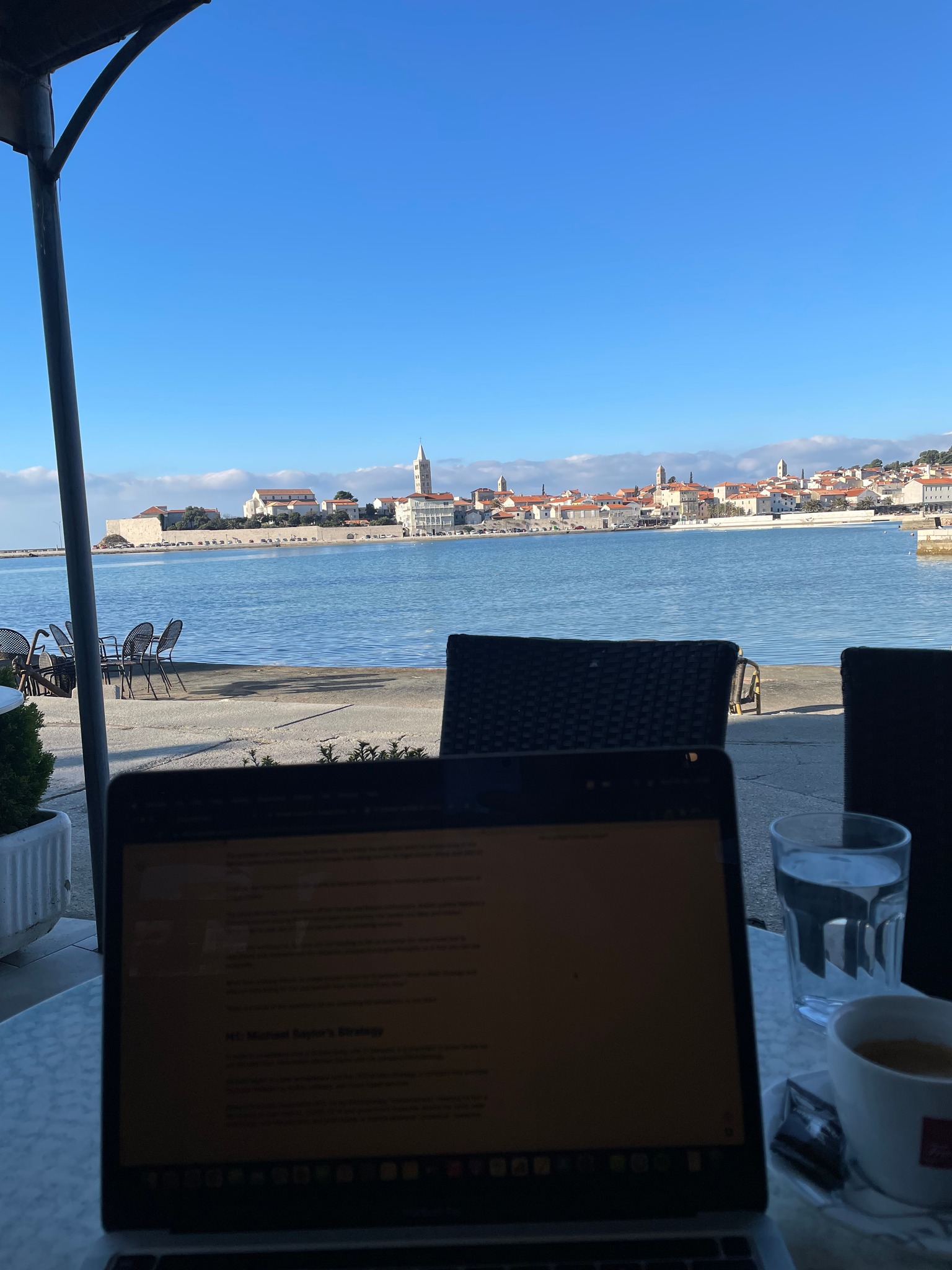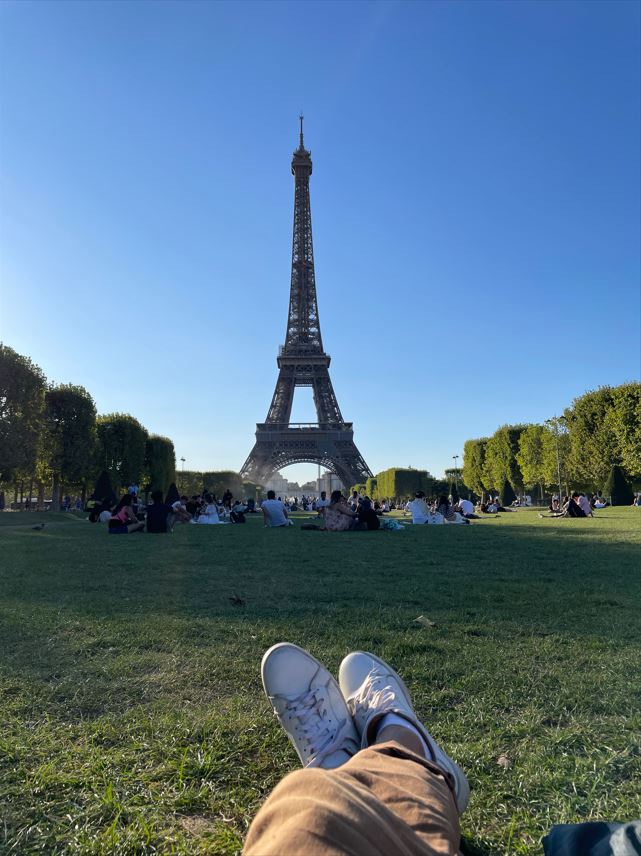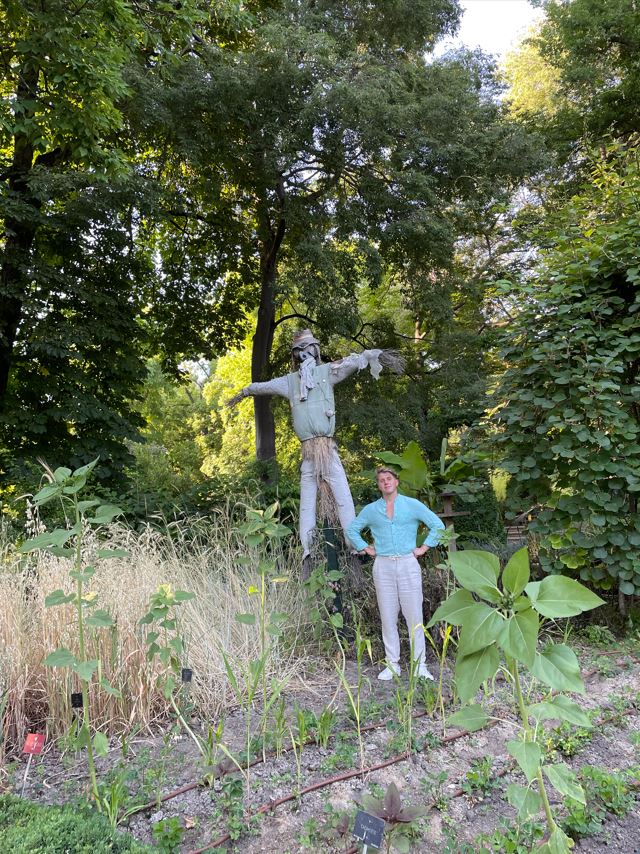January 3, 2023 - The Croatian dream - to live in Croatia and get income from abroad. Meet the locals who are living that dream, and find out how you could, too, in a new TCN series. In the third in the series, meet Dorian Antesic, who is enjoying life on the island of Rab.
Croatia, great for a 2-week holiday, but a nightmare for full-time living unless you are very rich, so the perceived wisdom goes. The Croatian dream is to live in Croatia with a nice income from abroad, as many foreigners and remote workers do. For Croatians, if I read the comments in my recent video, Croatia is the Best Place to Live: 8 Reasons Why (see below), salaries are too low and people are forced to emigrate in search of a better life.
While there is definitely an element of truth to this, it got me thinking. The era of remote work is here, and the workplace is increasingly global, with a labour shortage for many skills. It doesn't matter if you are from Boston or Bangladesh if you have the skills, desire, and work ethic, and are able to work remotely online. And while it is certainly true that salaries in Croatia are low, what about the opportunities that the global online marketplace offers? If foreigners can find ways to live in Paradise and work remotely, why not locals? Curious, I posted this on my Facebook and LinkedIn yesterday:
Do I know many Croats who are living in Croatia, but working remotely for international companies who would be interested in being part of a TCN interview series showcasing living in Croatia but earning online, including advice to others on how to get started? It could be an interesting series. If interested, contact me on This email address is being protected from spambots. You need JavaScript enabled to view it. Subject Remote Croatia.
Some 15 emails - and several inspiring stories - later, and I think we have the makings of what could be a rather interesting series, Croats Living in Croatia & Earning Abroad. Next up in the series, Dorian Antesic on the island of Rab.
My name is Dorian Antešić and I come from the Island of Rab. I am a writer and analyst in the field of immigration and bitcoin. I help people figure out how to benefit from this little orange thing called "bitcoin" and how to internationalize their life through obtaining a second residence, passport, alternative investments, and similar.
I studied finance in Rijeka, Prague, and Coimbra in Portugal. Due to my adventurous soul, I spent quite a substantial time in my early 20s traveling across Europe. As my grandma would say, I have "mrava va guzici" (literally "ants in the ass"), so I have seen and lived in a lot of places in the last 6 years. Many places, many people, and different cultures, but, at the end of the day, home called, and I answered gladly.
1. Many Croats are emigrating but you not only chose to stay, but managed to achieve the Croatian dream - living here and working for an international company. Tell us how you did it.
My Uni years were spent exploring Europe and working various jobs. From working as a waiter to leading NGO projects and starting my podcast. I gained a lot of work experience and got a "travel bug", so when Uni life was coming to an end, I wanted to continue the international lifestyle.
I wanted to be an entrepreneur, but I wasn't 100% sure about myself. So I let God decide for me. At the same time, I was trying to find work in a company AND find clients as a freelancer. Whatever comes first I will continue with that. After some time passed, I received two offers in the same week. One was a work offer from a big financial company in Luxembourg and the other was a freelance offer from a "remote-only" company.
I was in a dilemma. Luxembourg company paid more (with big corporate benefits), but I would have to move and settle in Luxembourg. And the city in e-x-p-e-n-s-i-v-e.
On the other hand, the freelance offer allowed me to work from anywhere I wanted, additionally, I could start my "adult" entrepreneurial venture. Although with a higher risk, I choose the freelance offer. It paid off. I developed a great relationship with this client and found other clients.

2. Looking for jobs based in Croatia can be a challenging task. How challenging was it for you to get where you are today - it must have taken a lot of determination and rejection.
I was mentally prepared as I knew it would be hard work to find something that suited me well. I must have sent at least 100 proposals, with just a few interviews and responses. There were times when you got a bit down due to no results. I would hit the gym and go to the beach to relax. My friend was in a job search as well, so we encouraged each other.
Determination paid off substantially. In my first "entrepreneur year", I managed to work with two of my business role models. I work with Sovereign Research (ex-Sovereign Man) and the bitcoin economist Saifedean Ammous. I read their books, articles, analyses and lectures during my Uni years, so I was thrilled to work and learn from them.
3. If you can do it, presumably others can too. Are you aware of others who have had similar success, but maybe in different industries?
Yup, for sure. I studied and lived with a couple who had a similar life projector. Actually, in 2022 I spent 6 months living and traveling in Spain with two Croats from Split who work remotely. They are in engineering and marketing. When you think about it, a lot of work these days is done via a computer. Even some parts of medicine. If you can work on a computer in an office, then you can just as easily work from anywhere you want.
Now, I don't want to be that guy who says "Remote work is everything, everyone needs to do it." No...Remote work does have its pros and cons, so it's only for some at certain times, but I would definitely recommend people think about it. It might be just the right thing for them.

4. What is the general feeling among people in Croatia today. Is it possible to have a good life here, or is the grass greener on the other side?
It seems to me that Croatians are divided into two opposite categories: those who want to leave as soon as possible and those who don't even want to think about leaving. Between these two "extremes," I prefer the latter. To quote the British writer Chesterton: "Men did not love Rome because she was great. She was great because they had loved her."Any place can become a "new Rome" if people put their unconditional love and focus into it. The good Lord created an abundant world, and we have to have an abundance mindset. Opportunities are everywhere.
Now, I don't want to moralize others that they shouldn't leave at all. People have their circumstances. Some people don't have a choice at a particular moment in their life. Everyone's life situation is specific. What I want to point out is that these two extremes aren't the only options. You can go abroad and still come back. You can explore the world if you want, but please remember where your home is. So it's not really "either to move away or stay home." You can have both. I still plan to travel internationally. I just began, but I know where to focus my determination.
I will create a "new Rome" out of my little Island of Rab. And I am not alone in this. I have friends, and I know people who are professionals in business and IT who share the same goal. Even though they might not express their goal the same as I did, we all have the same vision of a new Rome. The vision is beautiful, but it will require a lot of work from us. And a little help from the above.
5. Apart from corruption and nepotism, low wages are often cited as a reason to emigrate. But with the remote work revolution, as your example has shown, as well as the influx of many foreign workers to the likes of Rimac and Infobip for example, show that a good quality of life IS possible in Croatia. What are your thoughts on that?
Remote work is a gift from the above for Croatia. Before, you had to leave Croatia to have an opportunity to be in the "big league" with the top players. Now you don't have to. You can work from home and be on the same playing field as people in big cities or more developed countries. This is even more emphasized in smaller places like my Island of Rab. You don't have to move to Zagreb to find a good-paying job or clients. And you don't have to limit yourself to the tourism sector if you don't want to move from home. You can have all the benefits: be home AND work where you want. It's great!
6. What advice do you have for others who would like to stay in Croatia, but have no idea where or how to find a possible remote work job or business as you have managed to do?
Remember that it can take some effort to find what will suit you. And then start applying. As I mentioned, I have sent at least 100 proposals in my first two months of searching, with just a few responses and fewer interviews. But it paid off. Big time. Think about companies you like and visit their "Careers" site. Send your CV and motivation letter even if there isn't an active job opening. None of my clients actively searched for help when I contacted them. Use also LinkedIn. There are many job listings there. It's easy to apply through the platform, but consider that companies will receive MANY job applications. It's better to directly contact companies that you like and try to get some response.
And just be persistent...
7. Three reasons you decided to stay in Croatia, and the one thing you would like to change in this country.
The first reason is family. This is the place where my parents are, grandparents and cousins. It's a healthy thing to raise your own family surrounded by elders and relatives.
Secondly, it's my home. You shouldn't need a reason to love something. You love it unconditionally. Therefore, I do love my island without reason. It's the irrational people that improve things. So my duty (our duty) is to improve the place where we belong.
Thirdly, Croatia is still a majorly Christian country with Christian values. I was not too fond of the secular value system pushed in the more "western" countries. It's a life not lived according to our creation. It's a distorted life with wrong priorities. Croatia is still relatively healthy, so if I want to raise a healthy family, this is THE place to be.
Regarding change, I would like to have more competitive tax structures. Croatia has the "paušalni obrt" structure up to €40,000, which is solid, but I think this can be better. My job is to research global immigration and tax structures, so to give you an example, the Republic of Georgia has a tax structure of 1% tax on income up to $164,000 (around €155,000). Many foreigners in recent years have flocked to Georgia to benefit from this structure. The Croatian digital nomad visa was a success. I believe that a rise of "paušalni obrt" tax structure max cap would benefit Croatia even greater. We have everything digital entrepreneurs need PLUS our location, climate and pleasant culture.
You can check my website at www.antesic.com and my LinkedIn profile if you want to hear more from me.
****
Thanks Dorian, very inspiring, and congratulations on all your success.
You can follow the rest of this series in the dedicated TCN section here.
If you would like to contribute your story to this series, please contact This email address is being protected from spambots. You need JavaScript enabled to view it. Subject Remote Croatia.
****
What is it like to live in Croatia? An expat for 20 years, you can follow my series, 20 Ways Croatia Changed Me in 20 Years, starting at the beginning - Business and Dalmatia.
Follow Paul Bradbury on LinkedIn.
Subscribe to the Paul Bradbury Croatia & Balkan Expert YouTube channel.
Croatia, a Survival Kit for Foreigners is now available on Amazon in paperback and on Kindle.








